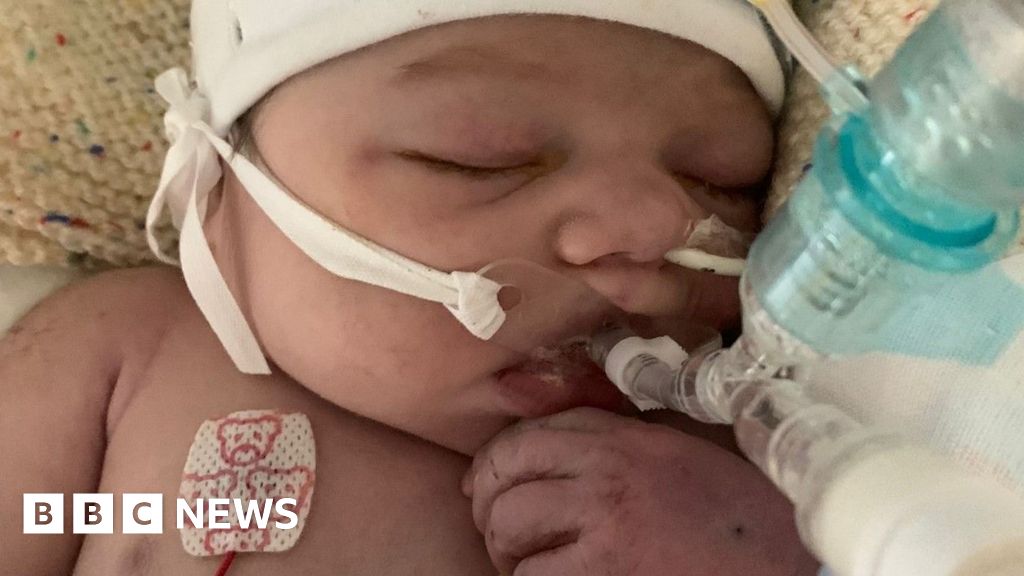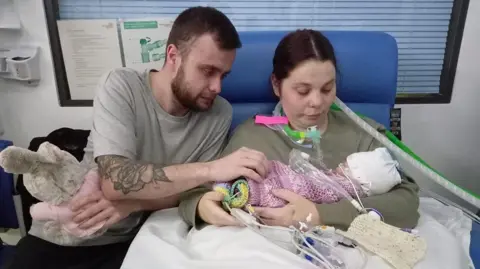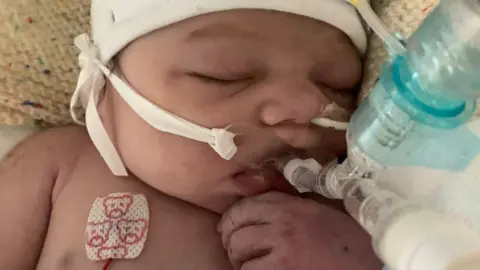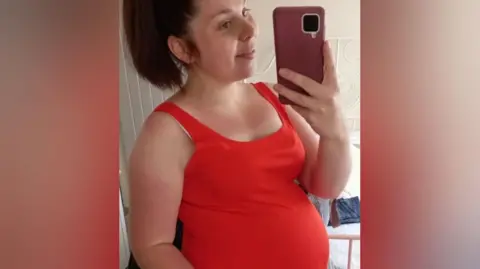
 Irwin Mitchell
Irwin MitchellA woman’s baby died after “a lack of hospital capacity” meant she could not be induced for 60 hours, lawyers say.
Induced labour had been planned for Chelsea Wootton when she reached week 41 of her pregnancy, Irwin Mitchell said an inquest into the death of Ava-Lea heard, but she “wasn’t warned” of dangers of going past that stage.
The inquest concluded delays in the care of Ms Wooton, from Birmingham, contributed to Ava-Lea’s death last year, the law firm said.
Sandwell and West Birmingham trust, which runs Birmingham’s City Hospital, accepted liability for her death, it said. In response, the trust explained it had “learned from this tragedy”.
The legal firm said that on 24 August, the day before she was due to attend hospital Ms Wootton, 31, believed she might have gone into labour and was admitted early.
But it added that during her admission, “a lack of hospital capacity” meant she could not be induced, Birmingham and Solihull Coroner’s Court heard.
 Irwin Mitchell
Irwin MitchellShe was sent home on 26 August, and told to return the next day, but about two hours later her waters broke and she was re-admitted to City Hospital.
The following day, traces of meconium – a baby’s first poo – were detected, which can be a sign of distress in a baby.
Ms Wootton, a first-time mother, then asked for a C-section, but she said this was rejected because of other emergencies, Irwin Mitchell said.
Ava-Lea’s heart rate then deteriorated, and Ms Wootton agreed to an assisted birth, and her daughter was delivered with the help of forceps.
However, Ava-Lea had been starved of oxygen as a result of breathing in meconium and died on 29 August, aged just 35 hours, the law firm said.
 Irwin Mitchell
Irwin MitchellMs Wootton said she was not told “about any risks of going overdue”.
She said: “I kept trying to raise concerns and I asked for a caesarean but I felt I was being ignored. It was only when concerns were raised about Ava-Lea’s heartrate did it feel that our care was a priority.
“We’ll always cherish those precious few hours we got to spend with her but I’m not sure we’ll ever get over what happened.”
Trust director of midwifery Helen Hurst said it apologised to family when it met them to share investigation findings.
“This is unbearably sad and we are deeply distressed at the loss of Ava-Lea,” said Ms Hurst.
“We have all learned from this tragedy and have already enacted a plan to monitor the improvements we have made.”
The trust extended “deepest sympathies” to family and friends, she added.




